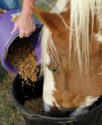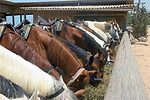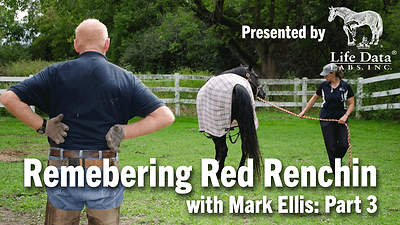Advertise Follow Us
Nutrition
Nutrient Strategies
There are pros and cons to every available grain format. Let’s weigh the options
Read More
Fighting Founder Through Forage Control
Food management can be just as important as foot management
Read More
Nutrient Strategies
Horses & H2O
Your clients may not think of water as a nutrient, but it’s the most essential dietary ingredient of all
Read More
Nutrient Strategies
Those Amazing Minerals
While they may not make up a very big portion of the daily diet, minerals play a key nutrition role and contribute significantly to horse health
Read More
Nutrient Solutions
Those Vital Vitamins
Vitamins have the power to promote and regulate virtually all of the body’s normal functions
Read More
Nutrient Strategies
The Real Low-Down on Fats
Here’s plenty of ammunition to help answer concerns from hoof-care clients concerning the fat supplementation controversy
Read More
Nutrient Strategies
Protein: What It Is, What It Isn’t
Let’s clear up some of the misunderstandings about the role of protein in the equine diet
Read More
Nutrient Strategies
Dealing With Carbohydrates, Energy and Other Nutritional Mysteries
Given the opportunity and good health, the horses you work with will choose to consume enough feed to meet their energy needs
Read More
Nutrient Strategies
Focusing on Forage
A diet based on forage means a happy, healthy equine digestive tract in the horses that you trim and shoe
Read More












